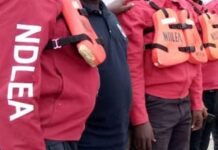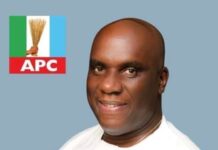On Thursday 10th January, the al Qaeda-linked rebel alliance in Mali captured the town of Konna, a gateway towards the capital, Bamako to the south. It was the signal that told the world clearly that the ambition of the insurgents was not just to keep Northern Mali but to reconquer the whole region and extend the repressive governance they have introduced beyond the current frontiers. This consists of public whippings, amputation of limbs and stoning after summary trials. There is also regular raping of women and even banning of music.
The French intervention of Friday 11th January with air strikes halted the advances by the insurgents and helped the Malian government forces reconquer Konna. These developments justify the consistent position of ECOWAS that halting the Islamic insurgents was necessary and it required military intervention. It would be recalled that the UN Security Council has been discussing the authorization of the ECOWAS/African Union demand to establish a 3,300 strong-mission to Mali with the acronym AFISMA for an initial period of one-year and the international community had been lackadaisical about taken action. The UN Secretary-General had failed to address the issue of how the force would be led, sustained,trained, equipped and financed. Indeed, he had been reported to have proposed the non-committal formula of “voluntary or bilateral contributions” in running the force. On October 9th 2012, he appointed Mr. Romano Prodi as his Special Envoy for the Sahel disregarding competent candidates such as Mohammed Ibn Chambers, the former ECOWAS President. Mr Prodi immediately announced that it would take him one year – October 2012 to September 2013 to plan the intervention. This was a clear message to the insurgents that they had a full year to consolidate their hold and extend it. It was this announcement that encouraged them to march south. We are aware that a lot of underground politics has underpinned the reluctance of the UN to move quickly. Algeria and Mauritania in particular have deployed their vast lobbying powers in the African Union and the United Nations to push the line of “negotiations only.” As many of the insurgent Islamic troops in Northern Mali are from these two countries, it is clear that this strategy is aimed at allowing the insurgents to consolidate their hold. They have also done all in their power to block the leadership role ECOWAS has tried to play. For us in West Africa, we cannot allow Algeria and Mauritania continue this policy of exporting their problems to our region.
Now that the cards are on the table, we commend the change of tactics and note with satisfaction the statement yesterday by the European Union foreign policy chief, Catherine Ashton for “accelerated international engagement.” We above all commend ECOWAS for its consistency since the problem arose. Nigeria, Niger, Burkina Faso, Togo and Senegal have been consistent on the need for immediate action and we encourage them to remain steadfast.
The rise of the Boko Haram insurgency in Nigeria, the Malian coup of 21st March 2012, Tuareg/radical Islamic rebellion in Northern Mali accompanied by the declaration of the State of Azawad are all indications about an agenda to pursue the political disintegration of West Africa which must be resisted. Persistent reports of a linkage between the Boko Haram insurgents
with the Ansar Dine radical Islamists in Northern Mali is a clear indication of the emergence of a regional threat we must confront. We therefore demand as follows:
1. The Economic Community of West African States (ECOWAS) is the principal stakeholder in the Malian/West African conundrum and this should be recognised by the African Union (AU) and the United Nations (UN) on the basis of the already accepted principle of subsidiarity;
2. The international community, should move urgently towards the establishment of AFISMA under the control of ECOWAS to contain the advance of the insurgents and re-establish the sovereignty of Mali in coordination with the AU and the UN;
3. Algeria and Mauritania should immediately desist from the obstructive antics and allow action to contain the spread of Islamic insurgency in West Africa;
4. West African and Malian Civil Society should remain vigilant about the numerous interests being played out in Mali and pursue its campaign to promote and work towards the restoration and preservation of a peaceful and democratic region.
We finally urge all democratic forces to continue efforts that will lead to the restoration of both the national integrity and constitutional and democratic governance of Mali.
Jibrin Ibrahim PhD, Director
Being the full text of a Press statement for immediate release by the Centre for Democracy and Development, Abuja, 12th January 2013




